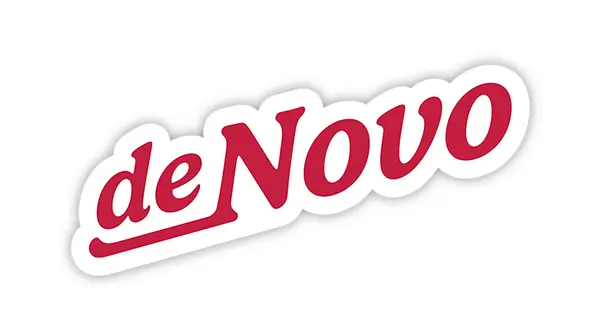We have a saying around here: “Your brand is what people say about you when you’re not in the room. “
So many people equate brand with graphic identity, but no one ever says, “Man, that company is so purple with a little bit of orange,” or “Let’s work with them because of their commitment to a slab serif font.” But you may hear, “They have great customer service,” or “They make THE best pizza in town.”
It’s the companies that generate these types of out-of-earshot compliments that live their values through their brand.
Case in point: my youngest daughter works at Tomaso’s Pizza in Cedar Rapids. Their mission statement is “Make Good Pizza.” They most certainly do, and their loyal clientele are apparently creatures of habit, since Anna can tell you who orders what, on what days, and what time they call in.
Their menu isn’t fancy or complicated. Their ingredients are simple. And their pizza is consistently delicious. Their mission statement isn’t “Make lots of money”—it’s about a standard to which they hold themselves accountable.
Knowing—And Living—Your Brand Values
"If your values are to deliver the cheapest and crappiest service or product you can get away with, well, you’re going to have a lot of cheap, crappy customers."
Most companies have a mission or a set of values (or both), whether they’re framed and hung on the wall or employees just intuitively know them. But customers don’t care how you display those values—they want to know how you put them to work.
It’s the companies that live their values out loud that consumers and clients seek out. Millennials are often thought of as values-based buyers, but really, all generations are. Your brand values dictate your audience. That means if your values are to deliver the cheapest and crappiest service or product you can get away with, well, you’re going to have a lot of cheap, crappy customers.
So how exactly does a brand “live” their brand values? It all depends on how you serve your customers, your employees and your community.
In the recent past, brands (especially larger ones) have started pushing their values into the limelight, where once they may have been a quieter part of the overall company image. Sometimes this can be a good thing, but it’s obvious who’s hitching a ride on the movement of the day and who’s living it as a part of their company ethos. Customers aren’t that easily fooled, and it can be very detrimental for a brand to be outed as inauthentic.
This is why decisions around “How do we talk about social issues publicly?” really matter. Here’s my advice: if someone wouldn’t say that’s who your company is when you’re not in the room, a post on Facebook or Twitter isn’t going to make it so.
Putting up a social media post in support of an unrelated but trending cause your company has never discussed (either internally with your team or externally with the public) smacks of opportunism. Even if it’s something coming from one person on your team who feels strongly about it, unless your company is actively living that value or has been taking meaningful steps to do so, it is not yet a part of your brand.
True organizational values take commitment and time. And you need to keep working to ensure they really are a part of your company DNA before you start flaunting them.
Need a Brand Values Check-Up?
"Discussing your values as a team can help build a cohesive company culture and strengthen your market position. It helps build a shared language around delivery and processes. And it gives you a litmus test for the type of work you do and who you serve—now and in the future."
Maybe your organizational values have been hanging on your wall for decades and are starting to look a bit sun bleached. Or maybe you recite them to new hires off a sheet of paper. In either case, it’s time to take a long hard look at them to make sure they still align with where your company is heading.
Discussing your values as a team can help build a cohesive company culture and strengthen your market position. It helps build a shared language around delivery and processes. And it gives you a litmus test for the type of work you do and who you serve—now and in the future.
Examining your company’s “immutable truths” in an objective way is key to understanding what your intrinsic values are before you start wordsmithing them into something people can remember.
HERE’S HOW IT WORKS:
Ask your team in a safe and possibly anonymous way, “What will always be true here?” You will see patterns emerge—positive and negative—around the things that are most innate to your company. It’s a place to look at how these beliefs play out across your organization—in good ways and in ways that offer an opportunity to improve.
Whether you lead this process internally or bring in a facilitator to help you discover and clarify your values, it’s important to validate them with your customers or clients to make sure they’re not just ideals. This work will play itself out in how your team interacts with the people you serve and how your organization communicates with the world.
Getting Started Is Always the Hard Part…
…but a good partner makes things easier. Ready to dive into your organizations values? Want help communicating them to customers and clients? Feeling stuck and just need a nudge in the right direction?
Reach out and we’ll give you the push you need to identify and run with authentic, impactful brand values.

ABOUT JEN
Jen Neumann is the CEO of de Novo Marketing—a full-service pack of creative yet strategic weirdos, based (mostly) in Cedar Rapids, IA. By day (and sometimes night) she is a facilitator, strategist, unapologetic podcast listener and public speaker who loves to dig into a problem and find a creative solution. When you’re looking for something different, you call Jen.


